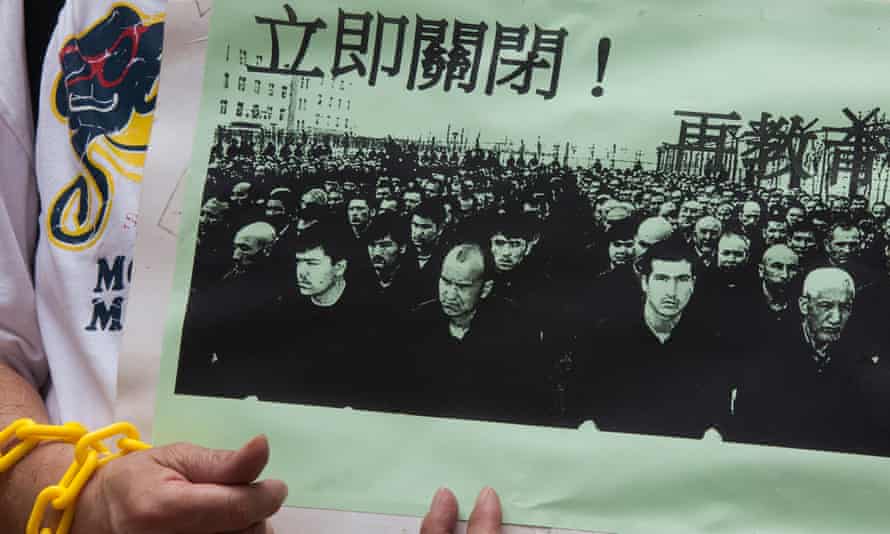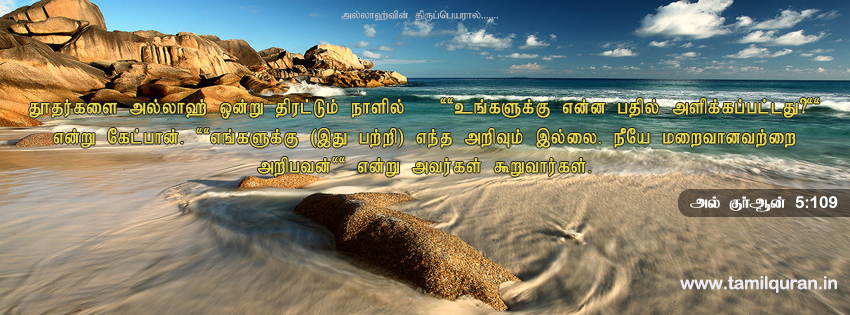Looking for an app that covers every single domain of Islamic media, like Dars, Manqabat, Nohay, Sermons, Tafseer, Youth Programs, Game Shows, Live TV Channels, Special Festive Islamic Content? NetFive covers it all. We work every day to bring you the best Islamic content around the world based on what you like to watch so you enjoy while you traveling, commuting, or just. Undoubtedly, there are great rewards as mentioned above. However there are also harsh penalties that have been mentioned, in holy Qur’an and hadeeth, for renouncing the Hajj. This is because of the secrets and important philosophies that this great Islamic worship has. The holy Qur’an says in a short and meaningful sentence about Hajj that: لِیَشْهَدُوا مَنافِعَ لَهُم. ALL ISLAMIC CONTENT IN ONE PLACE: Home Q & A FREE DOWNLOADS Kids ONLINE BAYAN Blog FORUMS ABOUT ISLAM IS LIFE JUST A GAME DR.BILAL PHILIPS Dr.Abu Ameenah Bilal Philips is renowed as a dynamic scholar on Islam.He also write number of books in Islam. Shortly after his reversion to Islam, he embarked on another journey to the other side. Pre Islamic Arabian Thought by Shaikh Inayatullah, M.A Ph.D., Formerly, Professor of Arabic, University of the Panjab, Lahore (Pakistan) In the present chapter, we are concerned only with the people of Arabia who lived in the age immediately preceding the rise of Islam. The Islamic Friday sermon is one of the most influential and educational means that plays an effective role in shaping the attitudes and beliefs of the individuals and society at large. Through the use of a powerful language, religious orators affect congregations emotionally and intellectually to achieve the Friday sermon’s purposes.
- Islamic Orators Bayanall Islamic Content In One Places
- Islamic Orators Bayanall Islamic Content In One Placement
- Islamic Orators Bayanall Islamic Content In One Place Crossword
A Masjid, which is the Arabic term for ‘Mosque’, entails a house dedicated to the worship of Allah (SWT). It is a place of prayer and prostration. The four walls of this building sanctify the name of Allah (SWT) and Allah (SWT) alone. A Masjid is a place where Muslims stand before their Lord, shoulder to shoulder with their Muslim brothers, with the sole purpose of Divine worship united by their common love for Allah (SWT). The Holy Prophet (peace be upon him) likened the mosques of this world to gardens of paradise:
Abu Huraira reported: The Messenger of Allah (peace be upon him), said, “When you pass by the meadows of Paradise, then graze as you like.” I said, “O Messenger of Allah, what are the meadows of Paradise?” The Prophet said, “The mosques.” I said, “O Messenger of Allah, what is its grazing?” The Prophet said, “To declare the glory of Allah, the praise of Allah, the greatness of Allah, and that there is no God but Allah.”(Tirmidhi 3509)
The term ‘Masjid’ is derived from one of the most beloved actions carried out by a believer, the Sujood, i.e. prostration, which is performed in our daily Salah. The act of Sajdah (singular of Sujood) is a position where the believer is closest to Allah (SWT) and it is where the believer bows down in utter surrender and humility before Him.
However, a Masjid is not confined or limited to the performance of Salah only, it stands for something much more. It is a safe place dedicated to the purification and refinement of all human beings, whereby they not only learn to make outward Sujood with their bodies but where they learn to prostrate their heart, mind, and soul before God. Upon entering the Masjid, a believer leaves the cares of the outside world and enters the comfort of Allah’s (SWT) refuge - what could be more beautiful than that.

Hence, a Masjid holds great significance in the realm of Islam. More than just a place of worship, it serves as a primary religious institution in any community and plays a major role in the community building of that area; the role of the Masjid is highly significant in the overall well-being of the society itself. Throughout Islamic history, the Masjid has served as a center of social, educational and political activities as well, marking it a focal point in any given society. All activities are geared towards one common goal: strengthening faith and concretizing a sense of unity in the community. Islam is a religion that not only encourages Muslims to come together in their spirituality but to develop kinship ties with our fellow brothers and sisters through community gatherings as well, such as the regular Friday prayers and sermons.
Islamic Orators Bayanall Islamic Content In One Places
There is a reason Allah (SWT) encourages His servants to offer their prayers at the mosque instead of offering them at home. Going to the mosque plays a great role in developing and refining a Muslim’s sense of religious identity. Each and every human being that stands shoulder to shoulder in a mosque is different. They may differ in class, culture, background, experiences etc. but before Allah (SWT), they stand as equals. What unites them is their faith in Allah (SWT) and the desire to please Him.
During the Holy Prophet’s (PBUH) time, he and his blessed companions utilized the safe space of the Masjid to learn and recite the Holy Quran, engage in Dhikr and Dua, socialize amongst one another, receive various delegations and prepare campaigns to raise funds for the cause of Islam. The Masjid also served as a shelter for the poor and the sick. It was not just a pivotal institution for spiritual matters, but also for their worldly matters, which still holds true in today’s world.
Hence, the Masjid is a cornerstone of every community and at the end of the day, solidarity in religious beliefs is what preserves a community’s Islamic identity.
| Saleh Al Maghamsi | |
|---|---|
| Website | http://www.alrasekhoon.com |

Saleh bin Awad al Maghamsi (also Saleh al-Moghamsy) (Arabic: صالح بن عواد المغامسي الحربي, ṣaleḥ bin `Awad al-Maġamsi; born 17 November 1963) is a sunni Islamic scholar from Saudi Arabia. He was the Imam of the Quba Mosque of Medina. He was a student of Ibn Baaz among other Islamic scholars.[1][2]
Early life and education[edit]
Bin Awad al Maghamsi was born in 1963 in Al Madinah Region (Al-Madina Al-Munawara) of the Kingdom of Saudi Arabia. He grew up and was educated in the Medina region. He attended King Abdul Aziz University where he graduated in Arabic language and Islamic studies.[3] He then studied under a number of Islamic scholars such as Mohammed Attia Salem, Abu Bakr Aljazairi, Saleh Mohammed Ibn Othaymeen, and Ibn Baaz.[3]
Career[edit]
He became Educational Supervisor in the Arabic Language Department in the General Directorate of Education in Al-Madina Al-Munawara circa 1991.[4] Several years later (circa 1994) he became a member of the Islamic Awareness Commission for Hajj. In 1422H (circa 2001) he was appointed as Khatib (giving Friday khutbah sermon) at King Abdul Aziz Mosque in Al-Madina Al-Munawara,[5] and worked there for several years.[3] In 1426H (circa 2005) he became a member of the International Commission on Scientific Signs in Quran & Sunnah.[5] He became imam of the Mosque of Quba in Al-Madina Al-Munawara circa 2006. He was appointed as the official mufti for Saudi Arabia Television Channel 1 the next year.[5] He became General Manager for the Center of Research and studies in Al-Madina Al-Munawara circa 2010.[5] He was appointed lecturer at the Superior Institute of Imams and Orators in Taibah University circa 2011.[5] He has made many contributions and lectures on different Arabic and Gulf countries' satellite channels.[5]
Al Maghamsi has been described as having close connections with King Salman. According to Foreign Policy magazine,
Islamic Orators Bayanall Islamic Content In One Placement
The new Saudi king recently served as head of the supervisory board for a Medina research center directed by Maghamsi. A year after Maghamsi’s offensive comments [on Osama bin Laden], Salman sponsored and attended a large cultural festival organized by the preacher. Maghamsi also advises two of Salman’s sons, one of whom took an adoring “selfie” with the preacher last year.[2]
Works[edit]
Recordings of his weekly lessons of interpretation in the Quba mosque in Medina have been released in five albums under the title Reflections verses.
Sheikh Saleh al Maghamsi has also monthly classes in Jeddah.[citation needed]
Website[edit]
Al-Rasekhoon fi Al-Elm (“Steadfast in knowledge”) is the official website of Saleh Bin Awad Al Maghamsi. According to the site, its name comes from a verse of the Quran, and aims to explicate the meanings of the Quran without neglecting the Sunna.[6]
TV programs[edit]
- Pros of interpretation — a weekly program in the interpretation, on Al-Majd channel.
- Kattouf Dania — televised monthly meeting held every second Monday on TV channel Al-Majd
- Bahrain Complex — thirteen half-hour episode series on Al-Majd channel; recorded in three days
- Secretary place — on the Qatari channel every Wednesday
- Tafseer — on Noor Dubai channel
Views and controversy[edit]
On March 27, 2012 on Qatar Television, Al-Maghamsi stated that although 'Osama bin Laden's organization' did great harm to the Muslim nation (umma) he 'has more sanctity and honor than any infidel'—infidel being defined as “Jews, Christians, Zoroastrians, apostates, and atheists”.[2][7] He has been accused by the conservative business newspaper Investors Business Daily of anti-semitism.[8]


On the controversy over whether women may be allowed to reveal their faces in public, i.e. need not wear a niqāb (Sheikh Ahmad Al-Ghamdi, had created an uproar in 2014 by saying it was allowed), Al-Maghamsi said it is 'always better to be modest though he admitted that not all scholars agree that women should not reveal their faces'.[9]
Al-Maghamsi has also come out in favor of 'taking care of historical mosques', stating that such a practice is not unorthodox but religious and an act of worship.[10]
See also[edit]
References[edit]
Islamic Orators Bayanall Islamic Content In One Place Crossword
- ^Ward, Olivia (29 January 2015). 'West has doubts on repressive Saudi Arabia's king'. The Star. Retrieved 25 August 2015.
- ^ abcWeinberg, David Andrew (27 January 2015). 'King Salman's Shady History'. Foreign Policy. Retrieved 25 August 2015.
- ^ abc'Biography of Saleh Al Maghamsi'. assabile.com. Retrieved 25 August 2015.
- ^According to information from assabile.com and Al Maghamsi's official website
- ^ abcdef'Curriculum Vitae'. alrasekhoon.com/. (official website). Retrieved 25 August 2015.
- ^'Official page of the Grand Sheikh Saleh Bin Awad al Maghamsi, a 'site firmly grounded in science''. alrasekhoon.com. Retrieved 25 August 2015.
- ^'Video clip. #3753 - Archival - Saudi Cleric Saleh Al-Maghamsi: In Death, Bin Laden Has More Sanctity and Honor than Any Infidel'. memri.org. Retrieved 25 August 2015.
- ^'New Saudi King Named In 9/11 Suits'. Investors Business Daily. 2015-01-26. Retrieved 25 August 2015.
- ^Abdullah Al-Dany (December 25, 2014). 'TO COVER OR NOT TO COVER'. Okaz/Saudi Gazette. Archived from the original on 24 September 2015. Retrieved 25 August 2015.
- ^'Sheikh Al-Maghamsi: Taking care of historic mosques is religious, sect and a revival of our glorious history'. Saudi Commission for Tourism and National Heritage. 2013-12-12. Retrieved 25 August 2015.
External links[edit]
- (in Arabic)Official website
